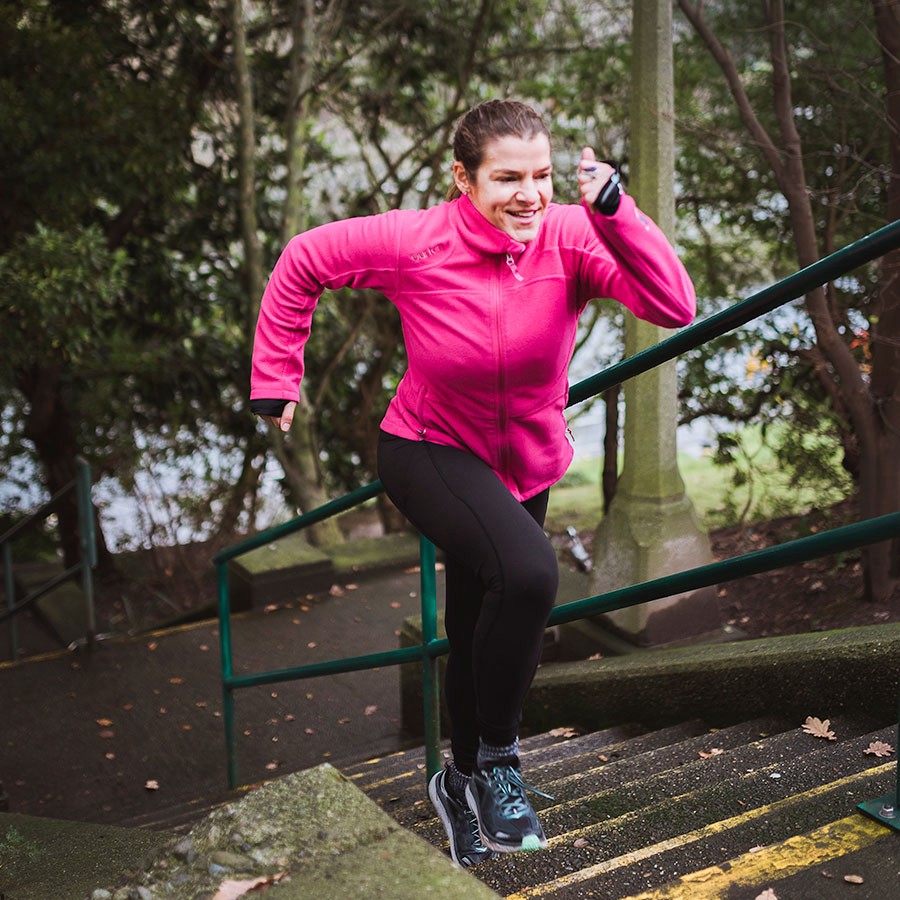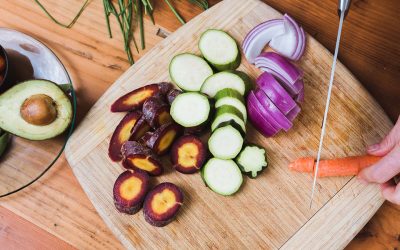When we think of getting in shape or increasing our exercise outdoors, rarely do we think about improving our lung function.
Taking care of your lungs is as important as caring for all of your other vital organs, like the heart, bones, brain, etc. Just like everything else in the body, with age, your lungs experience wear and tear, which can lead to difficulties breathing or worse.
To keep your lungs healthy and enjoy staying active as you age, follow these helpful tips to improve the function of your lungs, which will also improve your overall health.
1. Reduce/avoid exposure to pollutants.
For most people, the most common exposure to pollutants is actually from inside our homes and offices. Here are some ways to decrease exposure to indoor pollutants:
- Use only natural cleaning products! Look at EWG.org for safe ones.
- Avoid all scented candles and air fresheners
- Replace air filters regularly in your car and home
- Clean, dust and vacuum regularly, which helps to reduce exposure to mold, pollen, dust, allergens and pet dander
If you live in a city with poor air quality, wear a mask when outdoors. A bandana, painter’s mask, or any ventilation mask that covers your nose and mouth will work to filter particulates in the air and save you from inhaling toxins into your lungs.
2. Exercise regularly. Exercise is extremely beneficial for keeping your lung tissue healthy. Consider trying yoga classes with specific breathing practices. If air quality is poor in your city, avoid exercising outdoors during peak air pollution times and be sure to always wear a mask.
3. Increase your intake of foods high in Vitamin C, Vitamin E, and omega 3 fatty acids. All three nutrients are instrumental in reducing inflammation in your lungs and have a protective effect on lung tissue.
- Foods high in vitamin C include oranges, lemons, grapefruits, mangoes, papayas, kiwi, tomatoes, jicama, broccoli, potatoes, red peppers, orange peppers and yellow peppers.
- Foods high in vitamin E include broccoli, spinach, tomatoes, kiwi, peanuts, almonds, sunflower seeds, and hazelnuts.
- Foods high in omega-3 fatty acids include salmon (best to eat only wild), tuna, herring, mackerel, lake trout and other cold-water fish.
4. Stay well hydrated. A good rule of thumb for your minimum daily water intake is to divide your weight (in pounds) in half and drink that amount in ounces of water per day. For example, a 100 lb person should drink at least 50 oz of water per day. More water is needed with exercise, when at high altitudes, with caffeine and alcohol intake, and air travel.
** Caffeinated and sugary drinks do not count. Water, herbal tea, bubbly water does.
5. Get adequate sleep. Sleep is the best preventative medicine, anti-aging, stress-reducing, and overall health-promoting tool around. Getting adequate sleep allows your body to regenerate, or heal itself, from the inevitable cellular damage encountered during the day, especially if you live in a big city full of airborne pollutants and exhaust.
6. Don’t smoke or if you do, quit. You are probably familiar, by now, of the negative and deadly effects of smoking cigarettes. It increases your risk for lung cancer, COPD and asthma. Not to mention, with every inhale, you are sucking in thousands of toxins that cause severe damage to your precious lungs and overall health.
Breathing is a necessity of life. By keeping your lungs healthy by following these simple tips, you will breathe lighter and live longer.
To learn more about what you need to know for managing type 1 diabetes and exercise, click here: Mastering Your Blood Sugar During Exercise.
Learn more about type 1 diabetes and healthy eating. Click here: Nutrition & Dosing for Type 1s — What You Need to Know.
Want support on how to get an A1c below 6.5%? Dr. Jody offers private calls, online courses, and a monthly education program called The T1D CREW. Learn more here: www.DrJodyND.com.





